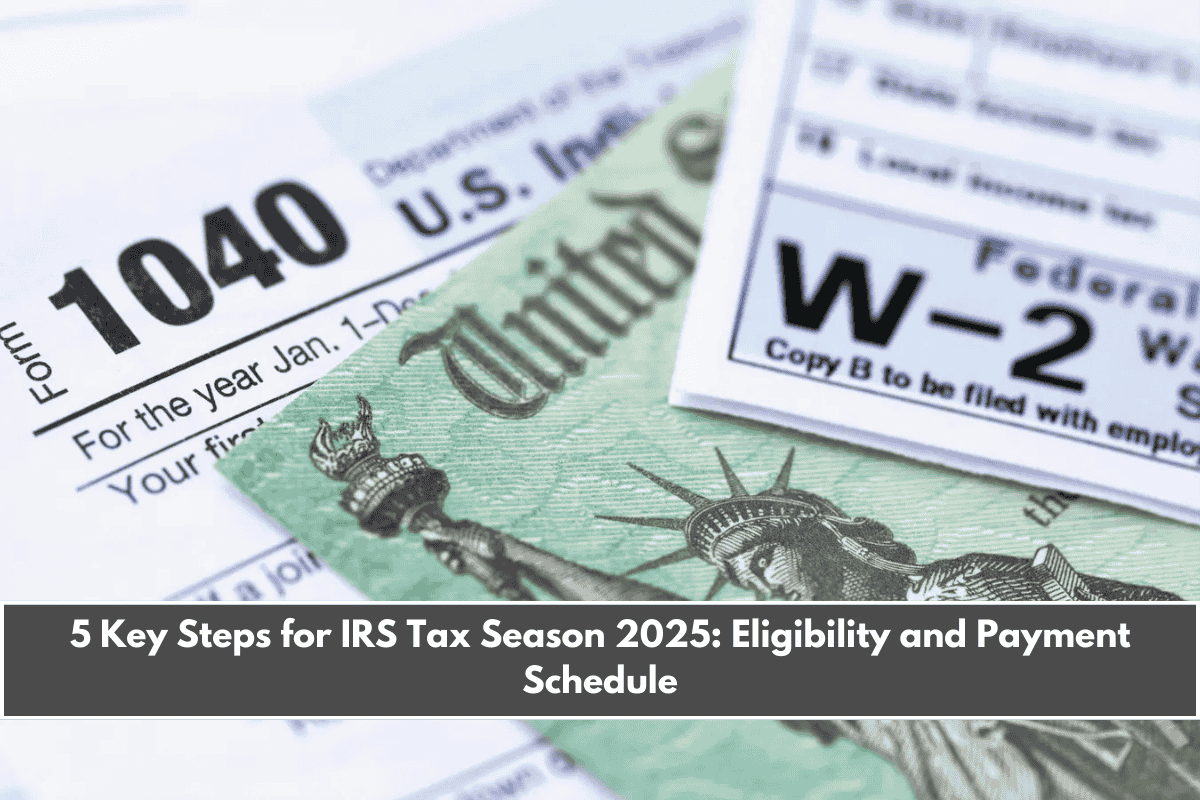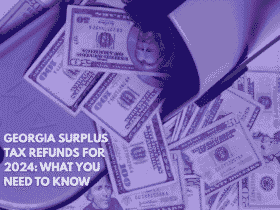The IRS tax season is one of the most important times of the year for working individuals, families, and businesses in the U.S. Whether you’re a first-time filer or an experienced taxpayer, being prepared early can save you time, money, and unnecessary stress.
The 2025 tax season brings a few changes you should be aware of, especially regarding credit eligibility, digital asset reporting, and withholding adjustments. In this article, we’ll walk you through five important steps to help you stay ahead, avoid penalties, and possibly even get a bigger refund.
Why Preparing for Tax Season Is Important
Tax season isn’t just about filling out forms—it’s a chance to maximize your refund, correct any past mistakes, and make sure you’re following IRS rules. If you wait too long or skip essential steps, you may face penalties or miss out on money you’re entitled to.
Let’s go over the five key steps that can help make your 2025 tax filing experience smoother and smarter.
1. Organize Your Tax Documents Early
Start by collecting all the important documents you’ll need. Staying organized saves time when it’s time to file and helps avoid delays in your refund.
Documents you may need:
- W-2s (from employers)
- 1099s (for freelancers, contract workers, and investments)
- K-1s (for partnerships or S-corps)
- Receipts for donations, medical expenses, or home office use
- Records for education, childcare, or energy credits
Pro tip: Keep a digital folder or use receipt-tracking apps to store your documents. This makes it easier to stay organized throughout the year.
2. Adjust Your Tax Withholding If Needed
If you received a big tax refund or owed money last year, it might be time to update your W-4 form or estimated tax payments.
Use the IRS Tax Withholding Estimator online to make sure the right amount is taken from your paycheck. You’ll avoid surprises and better manage your finances.
Update your withholding if you:
- Got married or divorced
- Had a baby or adopted a child
- Started a second job or side hustle
- Want to reduce or increase your refund
Example: Sarah, who recently began freelancing part-time, adjusted her withholding after using the IRS estimator. This helped her avoid a big tax bill at the end of the year.
3. Create an IRS Online Account
Setting up an IRS online account gives you direct access to:
- Your tax history
- Notices or messages from the IRS
- The status of your refund
- Ability to request an Identity Protection PIN
How to set up your IRS account:
- Visit IRS.gov and click “Create an Account”
- Verify your identity using an ID and personal details
- Set up multi-factor authentication for added security
Example: John, a freelancer, uses his IRS account to track past payments and view old tax returns, saving him time during filing season.
4. Understand Which Tax Credits and Deductions You Can Claim
Knowing which credits and deductions apply to you can reduce how much tax you owe—or increase your refund.
Common Tax Credits:
- Earned Income Tax Credit (EITC) – For low to moderate income workers
- Child Tax Credit (CTC) – Up to $2,000 per child under age 17
- Education Credits – Including the American Opportunity Credit (up to $2,500) and Lifetime Learning Credit (up to $2,000)
Standard vs. Itemized Deductions:
- Standard deduction: Set amount based on your filing status
- Itemized deduction: Claim things like mortgage interest, medical expenses, or state/local taxes
Example: Maria, a new homeowner, saved money by itemizing deductions, including her mortgage interest and property tax.
5. Mark Important IRS Deadlines on Your Calendar
Missing deadlines can mean penalties and extra interest—and no one wants that.
Key 2025 Tax Dates:
- January 15, 2025: Last date for Q4 2024 estimated tax payment
- Late January 2025: Tax season officially begins
- April 15, 2025: Final tax filing deadline for most taxpayers
Need extra time?
You can request a filing extension—but remember, taxes owed are still due by April 15, even if you delay the paperwork.
Facing a big tax bill?
Apply for an installment plan through the IRS so you can make monthly payments and avoid harsher penalties.











Leave a Reply